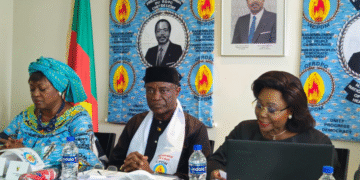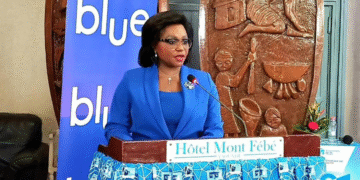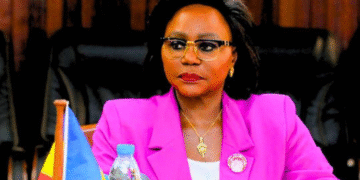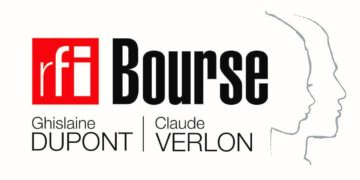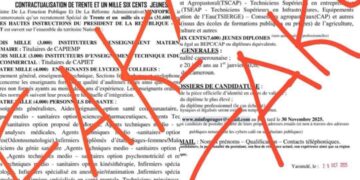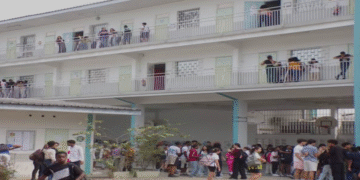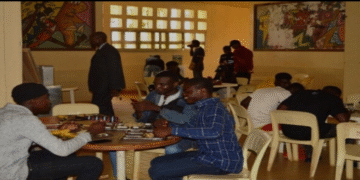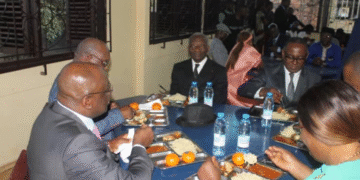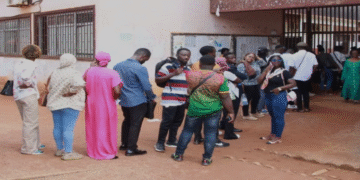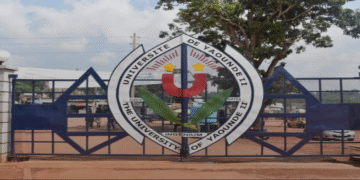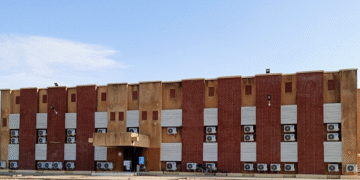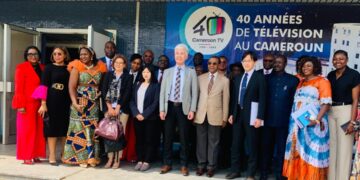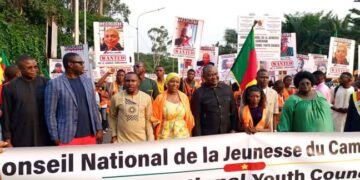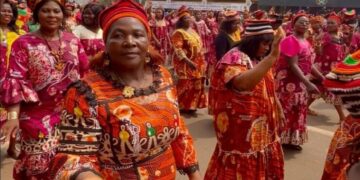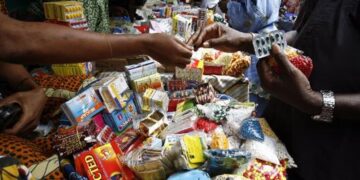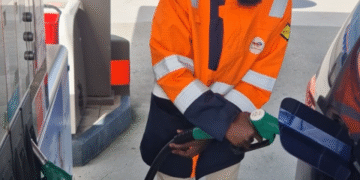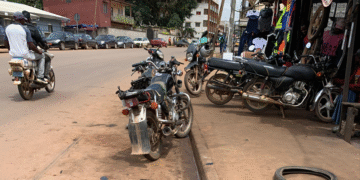Despite a January 10 ban prohibiting roadside vending, some vendors in the Central and other centers continued going against the ban.
As promised by the Yaoundé City Mayor, Luc Messi Atangana that iron hands will be used on stubborn vendors, the local authority made his way to some markets and commercial centers on Tuesday this week. The visit turned the centers into battleground as vendors struggled with their commodities. The shocking surprise left the vendors with damages as goods were destroyed, leaving the vendors with accumulated loses. Municipal police officers were sent to the markets to send away vendors, confiscate goods, and dismantle stalls.
The action, which took place just one day after the mayor’s-imposed deadline, signals the start of a potentially volatile campaign to clear public spaces of informal businesses, sparking resistance and anger among those affected. The crackdown began early Tuesday morning at the central market, where municipal police, in a show of force, descended upon vendors who had been occupying public spaces despite a previous warning. The police teams reportedly vandalized goods, confiscated merchandise, and demolished makeshift stalls as they carried out the eviction order. While some vendors complied, others resisted the action, resulting in verbal altercations and a tense atmosphere.
This is just the beginning of what appears to be a wider campaign to enforce the ban. This recent move follows a public announcement made on January 10th, where Mayor Atangana prohibited the sale of goods from wheelbarrows, portable stands, and other temporary structures on streets and sidewalks in certain areas of the city, effective January 20th. The announcement was seemingly a signal to vendors of the impending action, but the show of force was met with resistance nonetheless. It appears that many of the vendors who have been engaged in informal trading had no alternative plan.
The mayor’s aggressive approach is expected to extend to other areas of Yaoundé known for sidewalk vending, including Mokolo, Quartier Messa, Elig Effa, and several other major marketplaces and transit hubs. The message is clear: the city is determined to reclaim its public spaces, but the human cost of these actions is becoming increasingly apparent. The mayor’s move raises fundamental questions about how to address the realities of the informal sector. While the need for urban order and better traffic management is clear, simply removing street vendors from their place of business residents aim to better the city.




